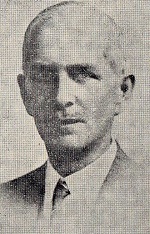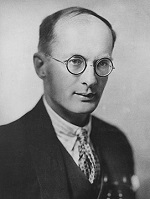Polish heritagePoland has a long and rich tradition of philosophy, economics, and cultural sciences. Our conference “Culture and Economics” is an excellent opportunity to bring to the forefront some outstanding scholars whose works and insights strongly influenced philosophical and scientific culture across academia, gaining recognition in Poland and abroad. We believe that this pluralistic intellectual heritage may encourage and inspire contributors representing different ontological commitments, methodological approaches, and axiological stances toward culture, to participate in a multidimensional exchange of ideas.
Nicolaus Copernicus (19 February 1473 – 24 May 1543) was a Renaissance-era mathematician and astronomer, who formulated a model of the universe that placed the Sun rather than the Earth at the center of the universe, in all likelihood independently of Aristarchus of Samos, who had formulated such a model some eighteen centuries earlier. The publication of Copernicus' model in his book De revolutionibus orbium coelestium (On the Revolutions of the Celestial Spheres), just before his death in 1543, was a major event in the history of science, triggering the Copernican Revolution and making a pioneering contribution to the Scientific Revolution.ted a model of the universe that placed the Sun rather than the Earth at the center of the universe, in all likelihood independently of Aristarchus of Samos, who had formulated such a model some eighteen centuries earlier. Copernicus was born and died in Royal Prussia, a region that had been part of the Kingdom of Poland since 1466. A polyglot and polymath, he obtained a doctorate in canon law and was also a mathematician, astronomer, physician, classics scholar, translator, governor, diplomat, and economist. In 1517 he derived a quantity theory of money — a key concept in economics—and in 1519 he formulated an economic principle that later came to be called Gresham's law. (From: https://en.wikipedia.org/wiki/Nicolaus_Copernicus)
Michał Kalecki (22 June 1899 – 18 April 1970) was a Polish economist. Over the course of his life, Kalecki worked at the London School of Economics, University of Cambridge, University of Oxford and Warsaw School of Economics and was an economic advisor to the governments of Poland, France, Cuba, Israel, Mexico and India. He also served as the deputy director of the United Nations Economic Department in New York City. Kalecki has been called "one of the most distinguished economists of the 20th century" and "likely the most original one". It is often claimed that he developed many of the same ideas as John Maynard Keynes before Keynes, but he remains much less known to the English-speaking world. He offered a synthesis that integrated Marxist class analysis and the new literature on oligopoly theory, and his work had a significant influence on both the neo-Marxian (Monopoly Capital) and post-Keynesian schools of economic thought. He was one of the first macroeconomists to apply mathematical models and statistical data to economic questions. Being also a political economist and a person of leftist convictions, Kalecki emphasized the social aspects and consequences of economic policies. Kalecki made major theoretical and practical contributions in the areas of the business cycle, growth, full employment, income distribution, the political boom cycle, the oligopolistic economy, and risk. Among his other significant interests were monetary issues, economic development, finance, interest, and inflation. In 1970, Michał Kalecki was nominated for the Nobel Memorial Prize in Economics, but he died the same year. (From: https://en.wikipedia.org/wiki/Micha%C5%82_Kalecki)
Oskar Ryszard Lange (27 July 1904 – 2 October 1965) was a Polish economist and diplomat. He is best known for advocating the use of market pricing tools in socialist systems and providing a model of market socialism. He responded to the economic calculation problem proposed by Ludwig von Mises and Friedrich Hayek by claiming that managers in a centrally-planned economy would be able to monitor supply and demand through increases and declines in inventories of goods, and advocated the nationalization of major industries. During his stay in the United States, Lange was an academic teacher and researcher in mathematical economics. Later in socialist Poland, he was a member of the Central Committee of the Polish United Workers' Party and a believer in centrally-managed economy. (From: https://en.wikipedia.org/wiki/Oskar_R._Lange)
Leonid Hurwicz (August 21, 1917 – June 24, 2008) was a Polish-American economist and mathematician, known for his work in game theory and mechanism design. He originated the concept of incentive compatibility, and showed how desired outcomes can be achieved by using incentive compatible mechanism design. Hurwicz shared the 2007 Nobel Memorial Prize in Economic Sciences (with Eric Maskin and Roger Myerson) for his seminal work on mechanism design. Hurwicz was one of the oldest Nobel Laureate, having received the prize at the age of 90. Hurwicz was educated and grew up in Poland, and became a refugee in the United States after Hitler invaded Poland in 1939. In 1941, Hurwicz worked as a research assistant for Paul Samuelson at the Massachusetts Institute of Technology and Oskar Lange at the University of Chicago. He was a research associate for the Cowles Commission between 1942 and 1946. In 1946 he became an associate professor of economics at Iowa State College. Hurwicz joined the University of Minnesota in 1951, becoming Curtis L. Carlson Regents Professor of Economics in 1989. He was Regents' Professor of Economics (Emeritus) at the University of Minnesota when he died in 2008. Hurwicz was among the first economists to recognize the value of game theory and was a pioneer in its application. Interactions of individuals and institutions, markets and trade are analyzed and understood today using the models Hurwicz developed. (From: https://en.wikipedia.org/wiki/Leonid_Hurwicz)
(From: https://plato.stanford.edu/entries/lvov-warsaw/)
In the 1930s, Ludwik Fleck (1896–1961), a Polish-Jewish microbiologist, developed the first system of the historical philosophy and sociology of science. Fleck claimed that cognition is a collective activity, since it is only possible on the basis of a certain body of knowledge acquired from other people. When people begin to exchange ideas, a thought collective arises, bonded by a specific mood, and as a result of a series of understandings and misunderstandings a peculiar thought style is developed. When a thought style becomes sufficiently sophisticated, the collective divides itself into an esoteric circle (professionals) and an exoteric circle (laymen). A thought style consists of the active elements, which shape ways in which members of the collective see and think about the world, and of the passive elements, the sum of which is perceived as an “objective reality”. What we call “facts”, are social constructs: only what is true to culture is true to nature. Thought styles are often incommensurable: what is a fact to the members of a thought collective A sometimes does not exist to the members of a thought collective B, and a thought that is significant and true to the members of A may sometimes be false or meaningless for members of B. (From: https://plato.stanford.edu/entries/fleck/)
Jerzy Kmita was one of the most prominent Polish philosophers. He specialized in the methodology of the humanities, epistemology, and philosophy and theory of culture. He is the author of the original conception of the philosophy of humanities, theory of scientific knowledge (historical epistemology) and the theory of culture (socio-regulatory theory of culture). He authored 16 books: monographs and academic textbooks, nearly 200 scientific articles, over 100 popularscience articles, and also edited 13 joint publications. In 1955 he graduated from Polish Studies at the Faculty of Philology at Adam Mickiewicz University in Poznan, then was hired at AMU where he worked continuously for 47 years (1955-2002). He headed the Department of Logic, was the director of the Institute of Philosophy and director of the Institute of Cultural Studies. He received his PhD in 1962, obtained a readership (habilitation) in 1968, became Associate Professor in 1974 and in 1979 – Professor. In 1986 he became Corresponding Member of the Polish Academy of Sciences (PAS), in 1994 – Real Member. He participated in the PAS Committee for Philosophy, he was member of the PAS Science of Science Committee and PAS Committee on Cultural Studies. He was a member of several scientific societies: International Union of History and Philosophy of Science, Polish Philosophical Society, Polish Semiotic Society, Poznan Society of Friends of Sciences. He participated in the work of editorial boards of scientific journals: Philosophical Studies (Studia Filozoficzne), Methodological Studies (Studia Metodologiczne), Dialectics and Humanism (Dialektyka i Humanizm), Poznan Studies in the Philosophy of the Sciences and the Humanities, Poznan Studies in the Philosophy of Science (Poznańskie Studia z Filozofii Nauki), Methodological Literature Review (Przegląd Literatury Metodologicznej), Philosophical Education (Edukacja Filozoficzna), Praxeology (Prakseologia), In the 1970s and 1980s he edited with J. Topolski Polish Scientific Publishers PWN editorial series “Methodology of Humanities”. He was the promoter of 63 master theses in the field of cultural studies, philosophy, and sociology, 26 doctoral dissertations, and a reviewer of more than 50 habilitation and professorial title procedures. (From: http://nauka-pan.pl/index.php/nauka/article/view/158)
On 20th of October 2009 died Leszek Nowak, one of the most creative and original Polish philosophers. Born on 7th of January 1943, Nowak studied law (Adam Mickiewicz University, Poznań) and philosophy (Warsaw University). He lived to philosophize. It is not a conventional phrase but the true description of his activities. He devoted his live to philosophy. He got professor’s title in 1976, at the age of 33. At that time he was the youngest professor in Poland and the author of the methodological conception – the idealizational theory of science. His theory was inspired by ideas he found in Marx’s writings. He made them explicit and precise by using the language of contemporary logical philosophy. The result was the theory that offered a new, detailed and systematic picture of science [10], [18]. Leszek Nowak admired Marx’s ideas and planned to reconstruct Marx’s entire philosophical system. It soon occurred to him that Marx’s social philosophy was unable to account for the functioning of the societies of so-called real socialism. Nowak retained Marx’s materialism but rejected the narrow, economic view of society. In 1977 he started to work on a new, generalized social theory, which he called the non-Marxian historical materialism [12]. In this theory real socialism occurs as the most oppressive system in the history of the hitherto known societies. One has to be bold or naïve to work on such a theory in the country of real socialism. Leszek Nowak was aware of the risk but he did not decide to accept intellectual compromise and in 1979 disseminated the typescript of his book on real socialism. During the time of Solidarność movement he spent all energy to educate union members and to reveal the oppressive nature of socialism. He was interned on 13th of December 1981 and spent a year in jail. In 1985 he was expelled from the university and in 1989 his professorship was reinstated. Extremely hard work, engagement in the Solidarność movement, and protests during internment seriously undermined his health. In the last years Leszek Nowak was not able to teach but he painstakingly worked on his new love – metaphysics. Results of his research were published in Polish in three volumes [16], [19], [20]. In our view his conception represents a non-standard approach to metaphysical problems. In Polish philosophy Nowak’s metaphysics can be only confronted with Roman Ingarden’s The controversy over the existence of the world. It is our firm conviction that Leszek Nowak’s place in Polish philosophy in the second half of the twentieth century is defined by the following qualities: a bold search for new and original idea, laborious work to present it in a systematic way, readiness to defend it against petrifying tendencies be they scientific, political, religious or ideological. (From: http://nauka-pan.pl/index.php/nauka/article/view/350)
A student of the philosopher Tadeusz Kotarbiński, she originally in 1925 received a doctorate in philosophy at the University of Warsaw with a thesis on Bertrand Russell. In her later work, she focused on the philosophy and sociology of ethics. Ossowska is often mentioned as a member of the Lwów–Warsaw school. From 1941 to 1945, Ossowska taught in the Polish underground university system. In 1945-48 she was a professor at the University of Łódź, after that at the University of Warsaw. She was banned from teaching between 1952 and 1956, while sociology was removed from Polish universities as a "bourgeois" discipline. From 1952 to 1962, she directed the Institute for the History and Theory of Ethics within the Institute of Philosophy and Sociology of the Polish Academy of Sciences (PAN). In 1972 the Communist authorities awarded Ossowska a first-degree Polish National Award (Polska Nagroda Państwowa I stopnia), the highest Polish state accolade. Ossowska was married to sociologist Stanisław Ossowski, with whom she closely cooperated in research and teaching. Maria Ossowska and Stanisław Ossowski are considered among the founders of the field of "science of science" due to their authorship of a seminal 1935 paper titled "The Science of Science. (From: https://en.wikipedia.org/wiki/Maria_Ossowska)
Florian Witold Znaniecki (15 January 1882 – 23 March 1958) was a Polish philosopher and sociologist who taught and wrote in Poland and in the United States. Over the course of his work he shifted his focus from philosophy to sociology. He remains a major figure in the history of Polish and American sociology; the founder of Polish academic sociology, and of an entire school of thought in sociology. He won international renown as co-author, with William I. Thomas, of the study, The Polish Peasant in Europe and America (1918–20), which is considered the foundation of modern empirical sociology. He also made major contributions to sociological theory, introducing terms such as humanistic coefficient and culturalism. In Poland, he established the first Polish department of sociology at Adam Mickiewicz University where he worked from 1920 to 1939. His career in the US begun at the University of Chicago (1917 to 1919) and continued at Columbia University (1932 to 1934 and 1939 to 1940) and at the University of Illinois at Urbana-Champaign (1942 to 1950). He was the 44th President of the American Sociological Association (for the year 1954). (From: https://en.wikipedia.org/wiki/Florian_Znaniecki)
Bronisław Kasper Malinowski (7 April 1884 – 16 May 1942) was an anthropologist whose writings on ethnography, social theory, and field research were a lasting influence on the discipline of anthropology. From 1910, Malinowski studied exchange and economics at the London School of Economics (LSE) under Charles Gabriel Seligman and Edvard Alexander Westermarck, analysing patterns of exchange in Aboriginal Australia through ethnographic documents. In 1914, he was given a chance to travel to New Guinea accompanying anthropologist Robert Ranulph Marett, but as World War I broke out and Malinowski was an Austrian subject, and thereby an enemy of the British commonwealth, he was unable to travel back to England. The Australian government nonetheless provided him with permission and funds to undertake ethnographic work within their territories and Malinowski chose to go to the Trobriand Islands, in Melanesia where he stayed for several years, studying the indigenous culture. Upon his return to England after the war he published his main work Argonauts of the Western Pacific (1922), which established him as one of the most important anthropologists in Europe of that time. He took posts as lecturer and later as a chair in anthropology at the LSE, attracting large numbers of students and exerting great influence on the development of British Social Anthropology. Among his students in this period were such prominent anthropologists as Raymond Firth, E. E. Evans-Pritchard, Hortense Powdermaker, Edmund Leach, Audrey Richards and Meyer Fortes. From 1933 he visited several American universities, and when World War II broke out he decided to stay there, taking an appointment at Yale. There he stayed the remainder of his life, also influencing a generation of American anthropologists. (From: https://en.wikipedia.org/wiki/Bronis%C5%82aw_Malinowski) |
| Online user: 11 | Privacy |

|

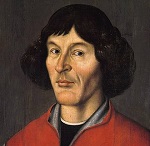
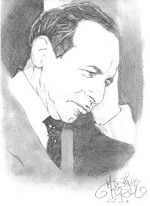
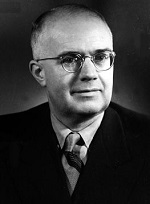
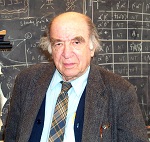
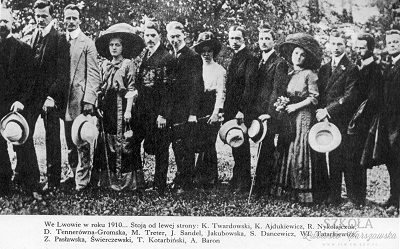
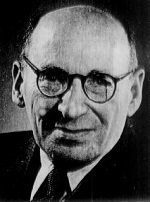
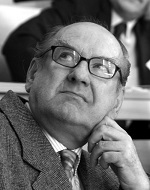
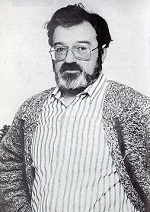
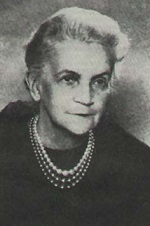 Maria Ossowska (née Maria Niedźwiecka, 16 January 1896, Warsaw – 13 August 1974, Warsaw) was a Polish sociologist and social philosopher.
Maria Ossowska (née Maria Niedźwiecka, 16 January 1896, Warsaw – 13 August 1974, Warsaw) was a Polish sociologist and social philosopher.